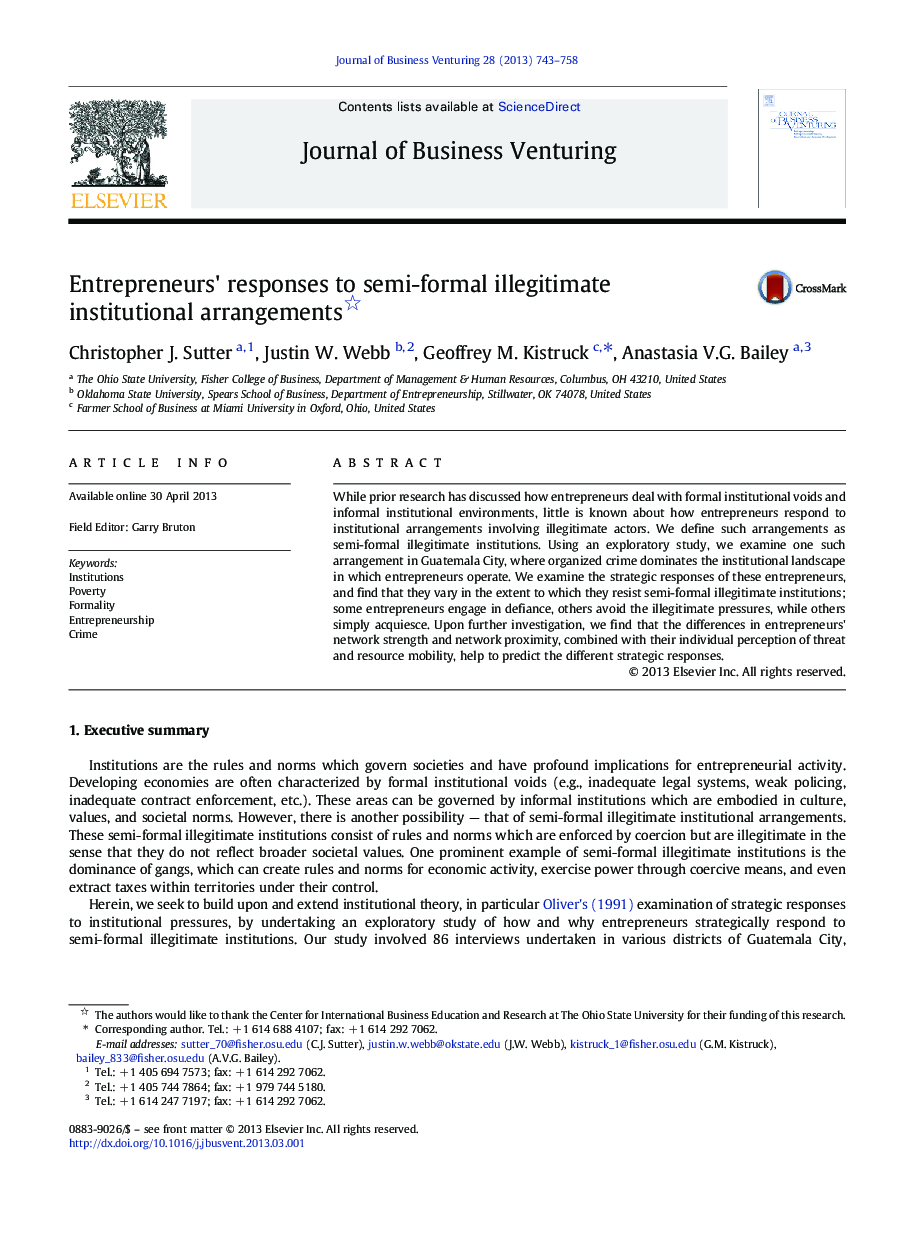| Article ID | Journal | Published Year | Pages | File Type |
|---|---|---|---|---|
| 1019353 | Journal of Business Venturing | 2013 | 16 Pages |
•Formal institutional voids may be filled by semi-formal illegitimate institutions•We interview microentrepreneurs about responses to illegitimate institutions•Entrepreneurs defy, avoid, or acquiesce•Their response depends on individual- and network-based characteristics
While prior research has discussed how entrepreneurs deal with formal institutional voids and informal institutional environments, little is known about how entrepreneurs respond to institutional arrangements involving illegitimate actors. We define such arrangements as semi-formal illegitimate institutions. Using an exploratory study, we examine one such arrangement in Guatemala City, where organized crime dominates the institutional landscape in which entrepreneurs operate. We examine the strategic responses of these entrepreneurs, and find that they vary in the extent to which they resist semi-formal illegitimate institutions; some entrepreneurs engage in defiance, others avoid the illegitimate pressures, while others simply acquiesce. Upon further investigation, we find that the differences in entrepreneurs' network strength and network proximity, combined with their individual perception of threat and resource mobility, help to predict the different strategic responses.
